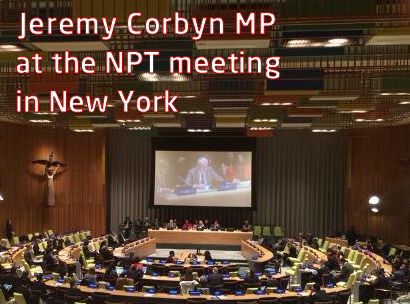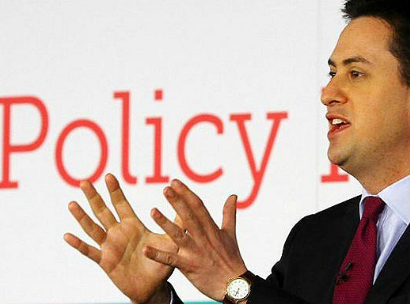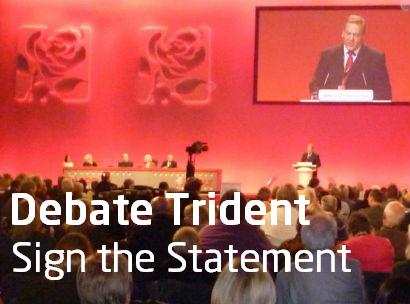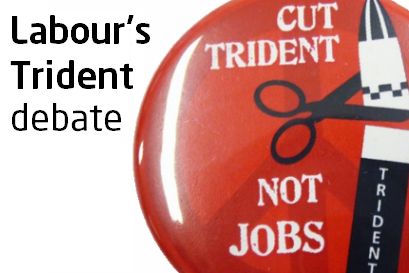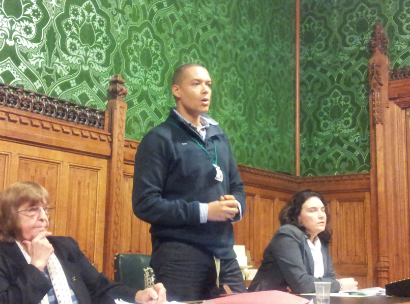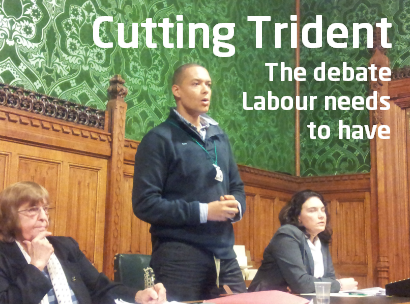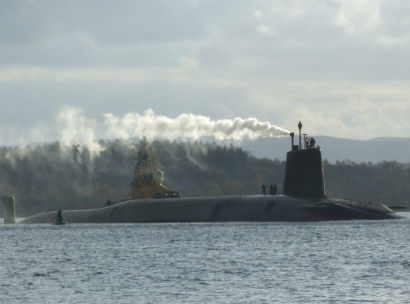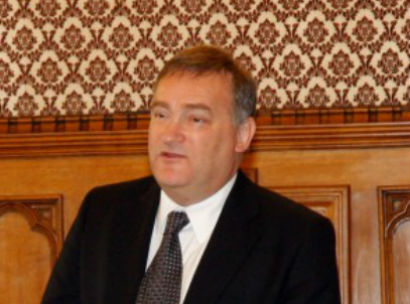By Jeremy Corbyn MP
This week in New York the world’s nuclear, and avowedly non-nuclear states will be meeting at the UN one year in advance of the five yearly review of the Nuclear non-proliferation treaty.
Labour should celebrate this. Fred Mulley, the Disarmament Minister in the first Wilson Government 1964-70 advocated the idea of a non proliferation treaty as a way of encouraging a nuclear free world.
The 1970 Treaty requires no- nuclear states to stay that way, declared nuclear weapons states to take steps towards disarmament and not export technology to facilitate nuclear weapons development.
The Treaty has had limited success. Positively the majority of states have not developed nuclear weapons, there are nuclear weapons free zones in Africa, Latin America and Central Asia. Negatively Israel, Pakistan, India and North Korea possess nuclear devices.
Israel is the only nuclear weaponed state in the region. We only know this because Mordechai Vanunu told the world this and suffered 18 years in jail of which 13 were in soilitary confinement. He is still denied the right to travel and is under severe restriction for his bravery.
Iran has processing capability and is now, following the historic Syria vote in August, deep in discussion with the IAEA and P5 plus 1 to become a verified non nuclear weapons capable state.
Now, more than ever, is the time to pursue the aim of a nuclear weapons free Middle East by organising the all nations conference.
Dangerously the failure of the NPT leadership to hold the much demanded conference on a nuclear weapons free middle east has led to serious threats of proliferation by Saudi Arabia and other states to rival Israel’s possession of these weapons of mass destruction.
The five declared states have all reduced war head possession but not the fundamental nuclear capability that the weapons bring.
Anyone that imagines nuclear weapons are somehow a manageable and reasonable part of a military arsenal should look at Hiroshima and Nagasaki after the bombing of 1945. Seeing the total waste and cancerous inheritance of the 300,000 dead then multiply it by ten to give an indication of the threat the whole nuclear concept presents.
Anyone who advocates the possession of the weapons as a part of a security argument then has to ask themselves, would they use them?
The UN Humanitarian Effects of War conference held in Oslo last year was boycotted by the five weapons states as was its successor in Mexico in February. In December Austria will convene a successor. So far the British Government has refused to confirm or otherwise its attendance.
Labour, at the very least, should be demanding attendance and as a gesture send Party representatives to discuss the real environmental, health and economic effects of nuclear weapons. Whilst the last Government did support the NPT process it also forced through a vote in 2007 to start the process of renewing Trident. 100 Labour MP’s voted against and opposition to nuclear weapons is growing.
In 2016 the “main gate” decision will be taken and commit Britain to £100bn over twenty five years. Are Labour MP’s seriously to be asked to spend this money when the demands on housing, education, transport and jobs are so overwhelming.
We need to recognise the Labour record on nuclear weapons is at best patchy. In 1949 Attlee managed to allow the secret development of the H Bomb which even his cabinet was unaware of. Callaghan did much the same thirty years later. Is the next Labour Government to go down this road or be bolder and more moral?
A start would be to say we are not renewing Trident and have a bold plan of job guarantees in very advanced engineering to ensure the huge skills in Barrow and elsewhere are not lost.
The Scottish TUC vote on Arms Conversion shows just how fast and far the debate has moved. The Nuclear Education Trust “Barrow Alternatives” is a serious and realistic examination of the economic case of not relying solely on armaments work. It would also give Britain some moral leverage in the world where the dangers off proliferation are huge. Those countries who have renounced these weapons such as South Africa, Argentina and Brazil have shown it is possible. It would also mean that Labour would keep faith with the 1970 Treaty has fulfilling its obligation to take steps toward disarmament.
Post Cold War, with the political damage to Labour of Blair and Iraq still obvious, it is time to end the cross party military consensus that there is “security” in having indiscriminate weapons of mass destruction.
Real security is about health, environment and education; about protecting people from destitution and sharing resources. Maintaining ourselves as part of a threat to the whole planet does not make Britain safer, or more respected.
This year’s conference will be the last before the General Election. Are we to have the chicanery by the pro nuclear elements to deny a debate or will the case for a non nuclear world be able to be put?
Blog by Jeremy Corbyn MP originally published on LabourList
___
Jeremy Corbyn EDMs following NPT PrepCom 2014
- EDM 1322 on UK Attendance at Humanitarian Consequences of Nuclear Weapons Conference in Austria
- EDM 1323 on Marshall Islands and Nuclear Disarmament

